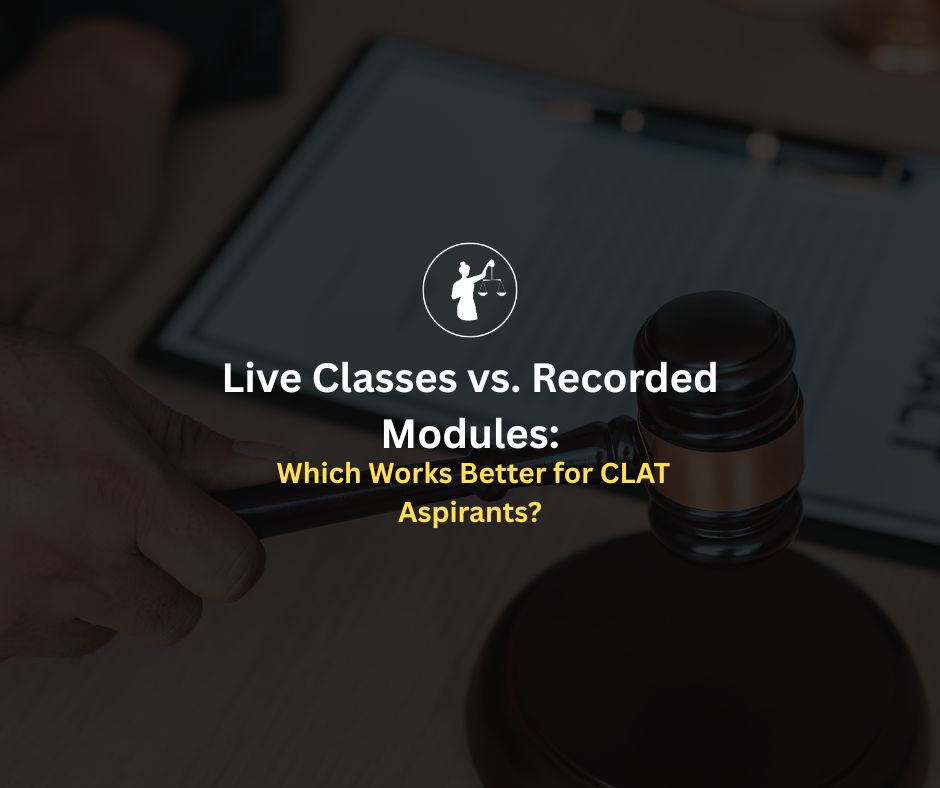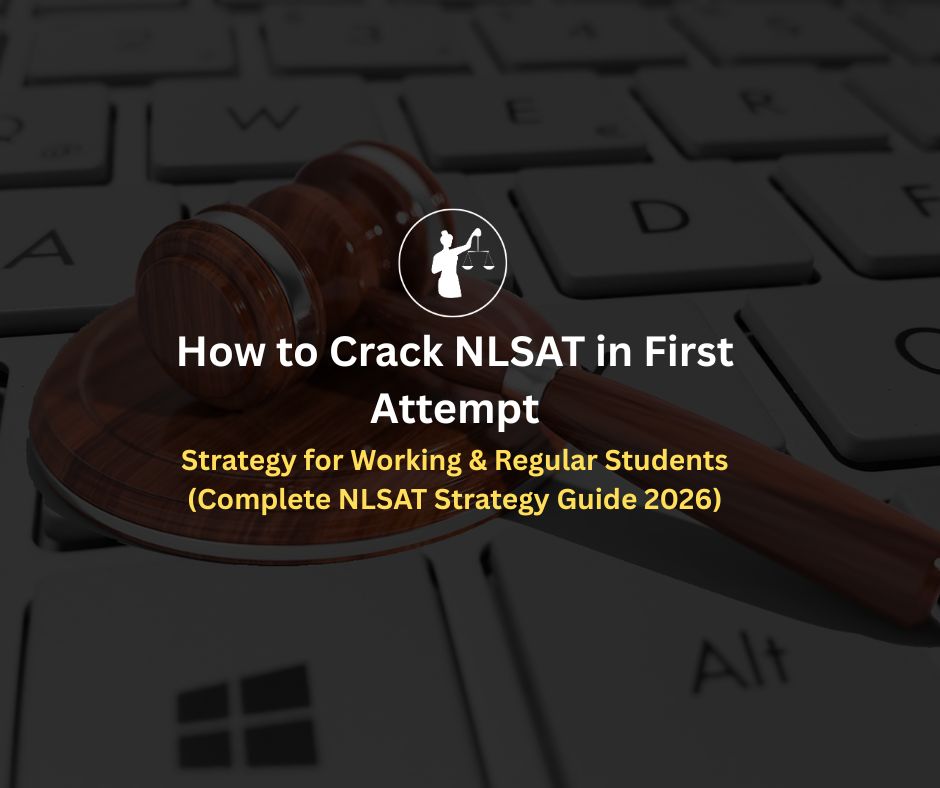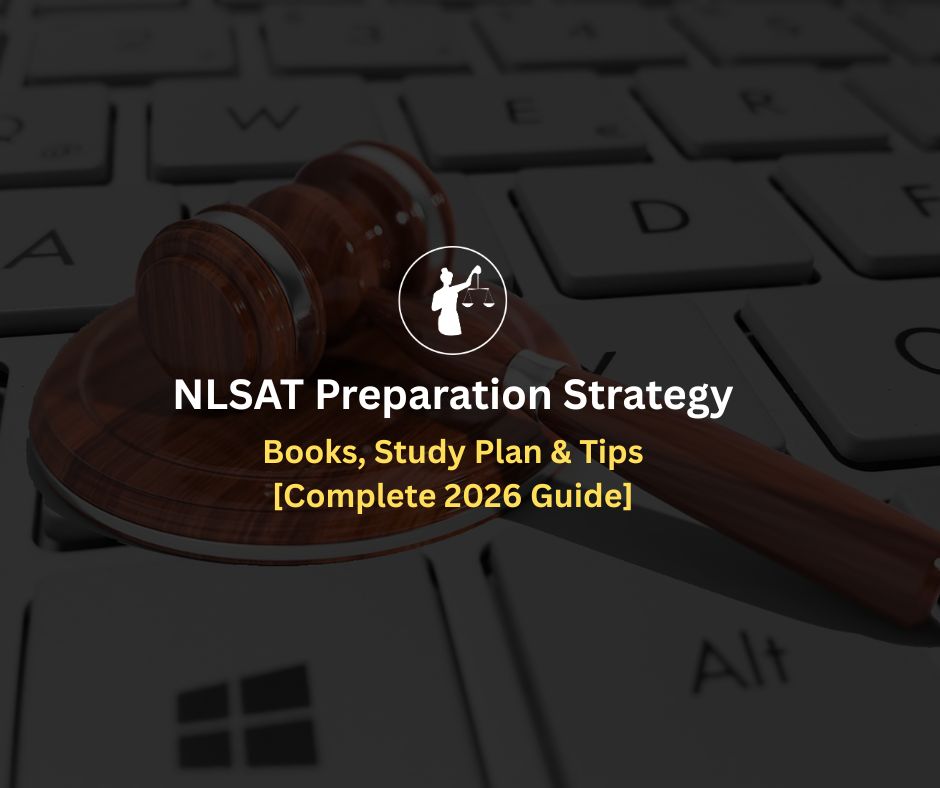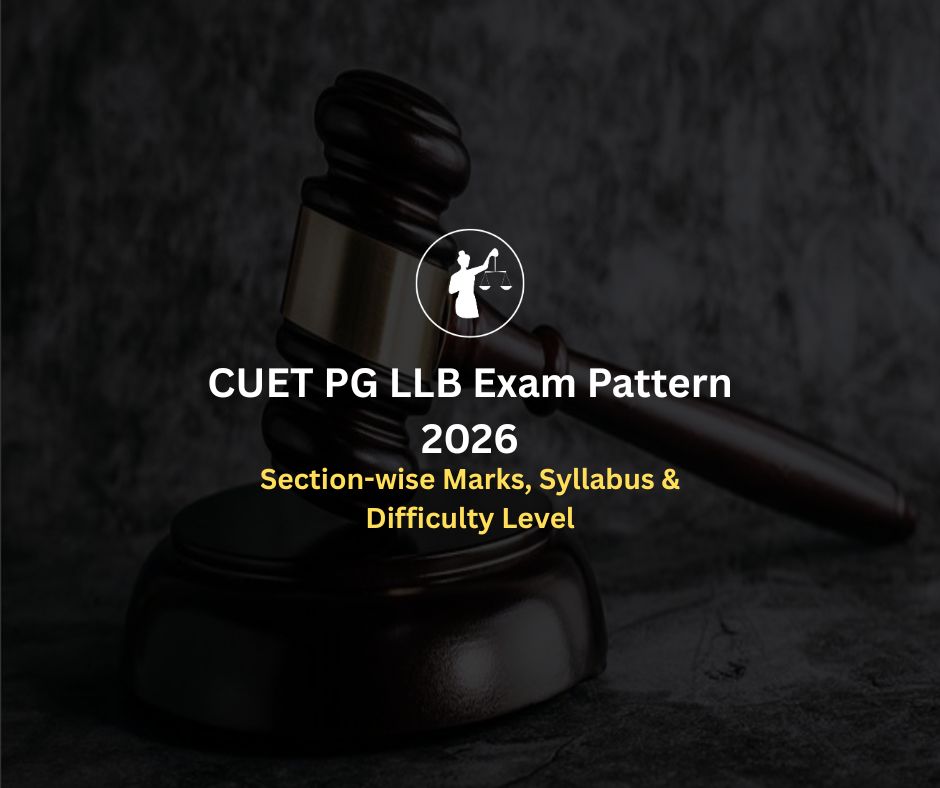The NLSAT is the crucial gateway exam for admission into NLSIU’s highly acclaimed 3-year LLB program. It serves as a benchmark for evaluating the aptitude and analytical skills of aspiring law students. Performing well on this nlsat exam not only opens the doors to a world-class legal education but also sets the stage for a rewarding career in law.
The exam assesses key areas such as English comprehension, current affairs, and logical reasoning making it an essential test for those serious about a legal career.
This comprehensive guide is designed to equip you with everything you need to excel in the NLSAT. Inside, you'll find a detailed breakdown of the exam pattern, a section-by-section explanation of the nlsat syllabus, and a clear timeline that includes critical dates such as the nlsat 2025 exam date.
In addition, the guide provides proven strategies and study tips to help you ace the nlsat exam with confidence. Whether you're just starting your preparation or looking to fine-tune your approach, this guide is your go-to resource.
Crack NLSAT 2025: NLSAT Coaching and Mentorship
The NLSAT (National Law School Admissions Test) is a rigorous entrance exam designed specifically for admission into NLSIU’s prestigious 3-year LLB program. It is the sole criterion used by NLSIU to evaluate aspiring law students, making it one of the most critical assessments for those who wish to pursue a career in law.
At its core, the NLSAT exam tests a candidate’s aptitude in various key areas that are essential for legal studies. The exam evaluates:
English Comprehension:
To ensure that students can understand and interpret complex texts—an essential skill in legal reasoning.
Current Affairs:
To gauge awareness of important national and international events, which is crucial for forming informed legal arguments.
Critical Reasoning:
To assess a candidate’s ability to think logically and solve problems, which directly correlates with the analytical skills required in law.
Understanding the nlsat syllabus—the detailed outline of topics covered in the exam—is crucial for effective preparation. It guides candidates on the skills and knowledge areas they need to master to excel.
The NLSAT plays a pivotal role in the admission process for NLSIU’s 3-year LLB program. A strong performance on this exam is not just about securing a good score; it is a testament to your potential as a future legal professional. Here’s why the NLSAT matters:
Gateway to a Prestigious Education:
Scoring well on the NLSAT exam can open doors to NLSIU, a top institution renowned for its rigorous legal education and excellent career prospects in the legal field.
Selective Admission Process:
NLSIU’s admission process is highly competitive. A high score on the NLSAT is a significant differentiator in a pool of thousands of applicants, ensuring that only the most capable and well-prepared candidates are selected.
Foundation for Legal Success:
Excelling in the NLSAT demonstrates not only academic proficiency but also the critical thinking and analytical abilities required to thrive in a demanding legal career.
Setting the Stage for Future Achievements:
For many, the NLSAT is the first major hurdle on the path to a distinguished legal career. A robust performance can lead to scholarships, mentorship opportunities, and a solid foundation upon which a successful legal practice can be built.
In summary, the NLSAT is much more than just an entrance exam. It is a comprehensive assessment designed to identify candidates who are not only academically capable but also possess the analytical and critical reasoning skills needed for success in the legal profession.
With the nlsat syllabus as your guide and a clear understanding of the exam’s significance, you can strategically prepare for the nlsat exam and stay informed about important milestones like the nlsat 2025 exam date.
The NLSAT exam is a comprehensive test designed to assess the aptitude and skills essential for a successful legal career. As part of the nlsat syllabus, it is conducted in a traditional pen-and-paper format, requiring candidates to complete all sections within a strict 150-minute window. Below is a detailed explanation of the exam format and breakdown, highlighting key components and their significance.
Pen-and-Paper Based:
The NLSAT is administered offline, meaning all responses must be marked on an official paper booklet using a pen.
This traditional method requires familiarity with manual test-taking procedures and emphasizes the importance of clear, legible answers.
150-Minute Duration:
Candidates have exactly 150 minutes (2 hours and 30 minutes) to complete the entire exam.
This time constraint underscores the need for efficient time management, ensuring that each section of the NLSAT exam is given adequate attention.
The exam is divided into two main parts:
Part A, which focuses on objective assessments of core skills, and Part B, which evaluates analytical and writing skills.
English Comprehension (25 Marks):
This section is designed to gauge your proficiency in reading and understanding varied texts from legal documents to general articles.
Mastery here is crucial as it forms the foundation for interpreting intricate legal materials later in your career.
Current Affairs (25 Marks):
Staying updated with the latest news and events is pivotal for a law aspirant.
This section ensures that you are well-informed about significant developments, which is vital for both the
nlsat syllabus and for forming strong, evidence-based arguments in legal contexts.
Critical Reasoning (25 Marks):
Through a series of thought-provoking questions, this section assesses your ability to analyze information,
identify logical connections, and solve problems efficiently.
These skills are indispensable for tackling real-world legal challenges.
Legal Aptitude/Reasoning (60 Marks):
In this section, you will encounter scenario-based questions that simulate real-life legal challenges.
You are expected to analyze the situation, identify key legal issues, and provide concise, well-reasoned responses.
This segment reflects your ability to apply the principles outlined in the
nlsat syllabus and is critical for demonstrating your readiness for legal studies.
Analytical Ability (Essay) (15 Marks):
This component requires you to write an essay on a current affairs topic.
Emphasis is placed on your ability to articulate your thoughts clearly, present structured arguments,
and support your views with logical reasoning.
Success in this section not only boosts your overall score on the NLSAT exam but also prepares you for the rigorous writing demands of a legal career.
The nlsat syllabus is meticulously designed to assess the essential skills required for success in the legal field.
It is divided into two distinct parts, each targeting different competencies. Whether you're preparing for the
nlsat exam or planning your study strategy for the nlsat 2025 exam date,
a deep understanding of the nlsat syllabus is crucial for effective preparation.
English Comprehension:
This section focuses on testing your ability to understand and analyze written content.
It emphasizes the importance of a strong vocabulary and the capacity to deconstruct complex texts, which are foundational for any legal career.
Current Affairs:
Staying informed is essential for a successful performance in the nlsat exam.
This section examines your awareness of significant global and national events,
encouraging you to follow reputable news sources to keep your knowledge current.
Critical Reasoning:
Here, you’ll encounter a range of question types designed to evaluate your logical thinking.
The section challenges you to apply various reasoning methods to solve problems and
understand abstract concepts skills that are indispensable in legal studies.
Legal Aptitude/Reasoning:
This component assesses your ability to analyze hypothetical legal scenarios.
Even without prior legal training, you are expected to identify key issues, understand core legal concepts, and offer well-reasoned responses.
It hones your analytical thinking, which is crucial for both the nlsat syllabus and future legal studies.
Analytical Ability (Essay):
In this section, you will write an essay that tests your ability to construct a well-organized argument.
Focus on a clear introduction, logically structured body paragraphs, and a concise conclusion.
Emphasis is placed on clarity, proper grammar, and a persuasive writing style all of which are
vital skills for success in the nlsat exam and beyond.
By keeping track of these important dates, understanding the eligibility criteria, and following the application steps,
you can plan your preparation and application process effectively.
This comprehensive overview is a key part of the nlsat syllabus strategy to help you
ace the nlsat exam and secure a spot in NLSIU’s prestigious 3-year LLB program.
Preparing for the NLSAT exam can be daunting due to its rigorous format and comprehensive nlsat syllabus.
However, by understanding the common obstacles and applying effective strategies,
you can overcome these challenges and boost your performance.
Time Management:
Many candidates struggle to complete the exam within the 150-minute window.
This is often due to spending too much time on difficult questions or not pacing themselves through the various sections.
Understanding Complex Passages:
The English Comprehension section often
features dense passages that require
strong reading skills and a robust vocabulary.
Misinterpreting the content or spending too long analyzing the text can lead to lower scores.
Handling Negative Marking:
With penalties for incorrect answers in the multiple-choice sections, guessing
without a strategy can harm your overall score.
Balancing Objective and Subjective Sections:
The dual nature of the exam, comprising both objective
(Part A) and subjective (Part B) components,
poses a challenge in preparing adequately for both types of questions.
Staying Updated on Current Affairs:
The Current Affairs section demands a
wide-ranging understanding of
national and international events,
which can be overwhelming if not regularly updated.
Effective Time Management Strategies:
Practice with full-length mock tests under exam conditions to build speed and endurance.
Use a timer to simulate the 150-minute window, ensuring you allocate sufficient time to each section.
Improving Comprehension Skills:
Develop a habit of reading diverse materials such as editorials, legal articles, and complex texts.
This builds your vocabulary and comprehension over time.
Handling Negative Marking:
Instead of guessing randomly, practice eliminating clearly incorrect options to increase your chances of selecting the correct answer.
Balancing Both Exam Parts:
Create a balanced study schedule that dedicates time to both objective and subjective sections of the nlsat syllabus.
This might include alternating days between practice tests for Part A and writing exercises for Part B.
Staying Updated on Current Affairs:
Subscribe to reliable news sources and use mobile apps that offer daily summaries.
This ensures you’re consistently updated on major national and international events.
Join our Crack NLSAT 2025 coaching and mentorship program to get expert guidance, structured study plans, and exclusive test series.
Don't leave your preparation to chance enroll today and take the first step toward NLSIU Bangalore.
Crack NLSAT 2025: NLSAT Coaching and Mentorship
The NLSAT (National Law School Admission Test) is an entrance exam conducted by NLSIU Bengaluru for admission into its 3-year LLB program. It is important because it provides a pathway to study law at one of India's most prestigious law schools.
The NLSAT 2025 syllabus includes:
Part A (Objective): English Comprehension, Current Affairs, General Knowledge, Critical Reasoning, Legal Aptitude.
Part B (Subjective): Analytical Ability and Legal Reasoning through essay-type questions.
The NLSAT 2025 exam is divided into two parts:
Part A: Objective questions (75 marks).
Part B: Subjective questions (75 marks), including essay-type questions and legal reasoning.
The English Comprehension section includes:
Reading Comprehension
Grammar and Vocabulary
Sentence Completion
Para Jumbles and Error Spotting
To prepare for the NLSAT Current Affairs section, regularly read newspapers, follow reputable news websites, and revise monthly current affairs from credible sources. Focus on legal news, government policies, and socio-political issues.
Critical Reasoning tests your ability to analyze, evaluate, and logically respond to arguments. Mastering this section helps improve your decision-making skills, which is essential for the NLSAT 2025 exam.
Practice solving case-based questions, reading judgments, and analyzing legal principles. Regularly practicing mock tests and previous year papers will also enhance your analytical skills for NLSAT 2025.
The official NLSAT 2025 exam date has not been announced yet. Keep checking the official NLSIU Bengaluru website for updates.
To appear for the NLSAT 2025, candidates must have completed a Bachelor’s degree in any discipline with at least 45% marks (40% for reserved categories) from a recognized university.
For the essay-based question, focus on presenting logical arguments, structured analysis, and clear writing. Practice writing on various legal and socio-political issues to improve your skills.
Some recommended books for NLSAT 2025 include:
“Legal Awareness and Legal Reasoning” by AP Bhardwaj
“Verbal and Non-Verbal Reasoning” by RS Aggarwal
Monthly current affairs magazines for GK and Current Affairs.
Focus on solving multiple-choice questions related to English Comprehension, General Knowledge, Current Affairs, Critical Reasoning, and Legal Aptitude. Practicing mock tests and previous year papers is crucial.
Yes, there is negative marking for Part A of the NLSAT 2025 exam. However, Part B (Subjective Section) does not have negative marking.
Analyzing previous year NLSAT papers helps you understand the question pattern, difficulty level, and important topics. Break down each paper by section, identify weak areas, and improve accordingly.
The best online resources for NLSAT 2025 preparation include:
NLTI’s NLSAT Coaching Program
Online Mock Tests and Test Series
Legal News Websites and Blogs
NLSAT-specific YouTube Channels





